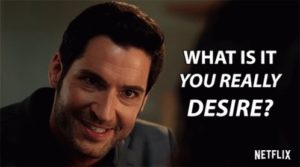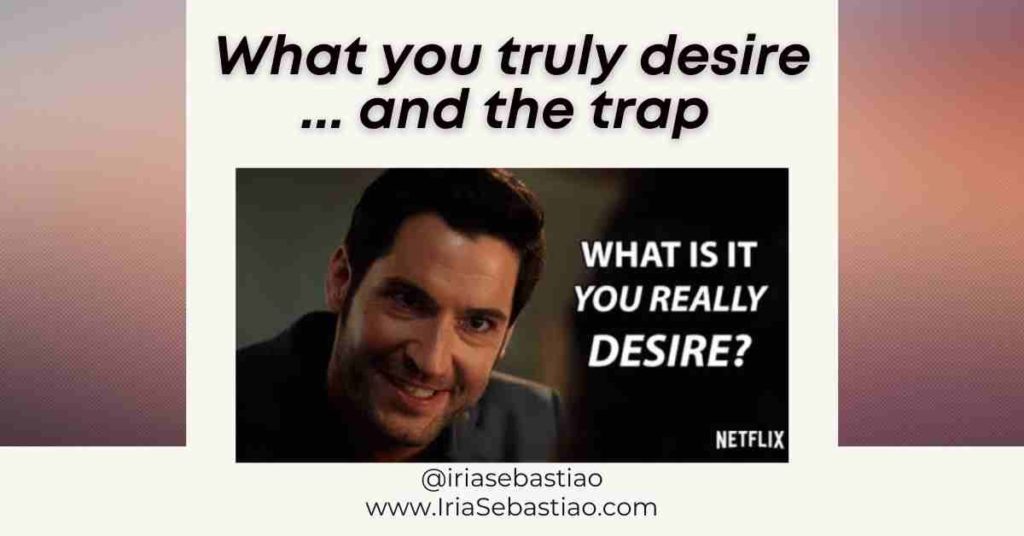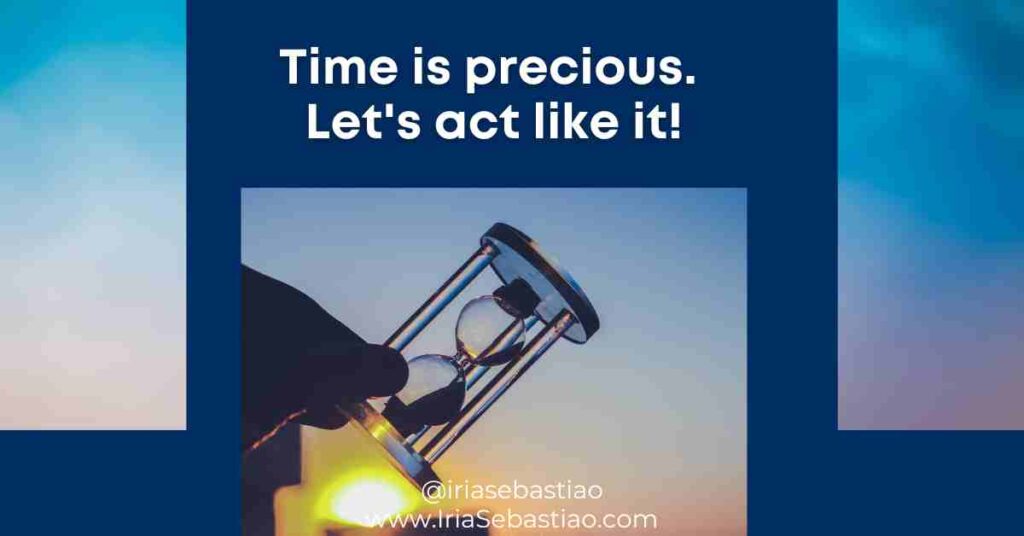“What is it you really desire” is a question that the character Lucifer makes in the Netflix show of the same name. In the show, the inquiry helps solve entertaining crimes, but it can be the start of solving emotional crises in our lives.
 Recognizing what we really desire can light our path towards what is really important and help us enjoy better the journey towards other more “mundane desires.”
Recognizing what we really desire can light our path towards what is really important and help us enjoy better the journey towards other more “mundane desires.”
Often, we think we want the “mundane desires” such as more stuff, comfort, titles, education, prettier body, status, recognition. However, when we go deeper, we discover that we believe that those things will somehow be what brings what we truly desire: to be loved and accepted.
Unfortunately, from an early age, we learn to think that only we do things “right” we are worthy of love and acceptance. Unconsciously, it comes from how we experience our parents’ and caregivers’ love. We learn that we deserve their love only when we are “good,” when we have good grades, complete the chores, follow a specific career, have a certain level of success.
We experience love as conditional and, deep inside, we go on craving unconditional love and acceptance.

Unconditional love is possible. However, it will not come from others. Even though we mistakenly keep seeking it from outside, first, from our parents and caregivers. Then, we seek it from friends, romantic partners and the world in general.
Here, one way of starting this process of loving oneself:
- Be more aware of the conditions you put to love yourself
- Drop and shift those conditions and beliefs
- Exercise self-love and self-acceptance until it becomes effortless
The trap and the way out
The “funny thing” is that we don’t realize that others are also busy in the same trap: feeling insecure and seeking our unconditional love and acceptance.
It is a trap because as long we are full of conditions for loving ourselves, we will be full of conditions about loving everyone else. So nobody gets what they want. There is no way out of it. Almost.
The primary way out is by removing the condition that this unconditional love has to come from others. Then, we need to learn to love ourselves. Unconditionally. As we are. Right now.
Simple, huh?
Not really.
It is easier said than done because we have to unlearn many conditions that we have been practicing for too long.
The paradox towards loving oneself
The journey of loving oneself alone can be very challenging. Paradoxically, we do need someone else to help us make this shift towards ourselves- at least initially.
We need someone who can:
- Help us see the traps and conditions we have created
- Validate our changes and actions towards more self-love
- Help us overcome another significant trap: guilt 😬
Guilt is another major trap because it can keep us small and slaves of hurtful thoughts, relationships and circumstances for too long.
Guilt is an emotion we learn in relationships with other people: “if you don’t do this, in the way I want, you are a bad boy/girl, and you should feel bad.” And, because of it, we need a healthier relationship to help us unlearn guilt. Someone who can say:
- “You are not a bad person because you are taking care of yourself now,”
- “It is ok to explore things your way,”
- “It is ok to make you a priority too!”
 A lighter journey
A lighter journey
The process of dropping guilt and many other unnecessary beliefs and burdens can be challengingwhen we do it alone. The journey of loving ourselves more unconditionally can be much lighter if you have loving and skilled support.
If you, or someone you know, would like to embark on a journey of reconnection with oneself with more self-love, having supportive and encouraging guidance, let’s talk! Allow me to show how the journey can be lighter.



